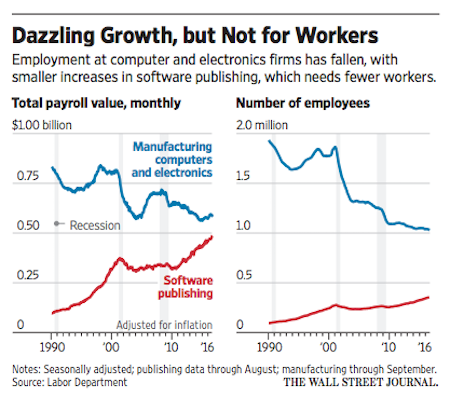We’ve been talking about how robots are going to supplant so many jobs, and it’s time for a dedicated thread.
To start it off, is this aptly titled Washington Post article that takes a peak inside of one business who is having difficulty finding people who want to work on its manufacturing line - and they are resorting to putting in robots simply to keep the lines going.
Within this article is some interesting observations on the people who work there.
The line was intended for 12 workers, but two were no-shows. One had just been jailed for drug possession and violating probation. Three other spots were empty because the company hadn’t found anybody to do the work. That left six people on the line jumping from spot to spot, snapping parts into place and building metal containers by hand, too busy to look up as the forklift now came to a stop beside them.
The robots were coming in not to replace humans, and not just as a way to modernize, but also because reliable humans had become so hard to find. It was part of a labor shortage spreading across America, one that economists said is stemming from so many things at once. A low unemployment rate. The retirement of baby boomers. A younger generation that doesn’t want factory jobs. And, more and more, a workforce in declining health: because of alcohol, because of despair and depression, because of a spike in the use of opioids and other drugs.

